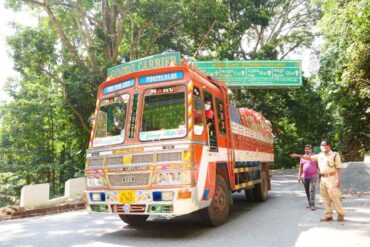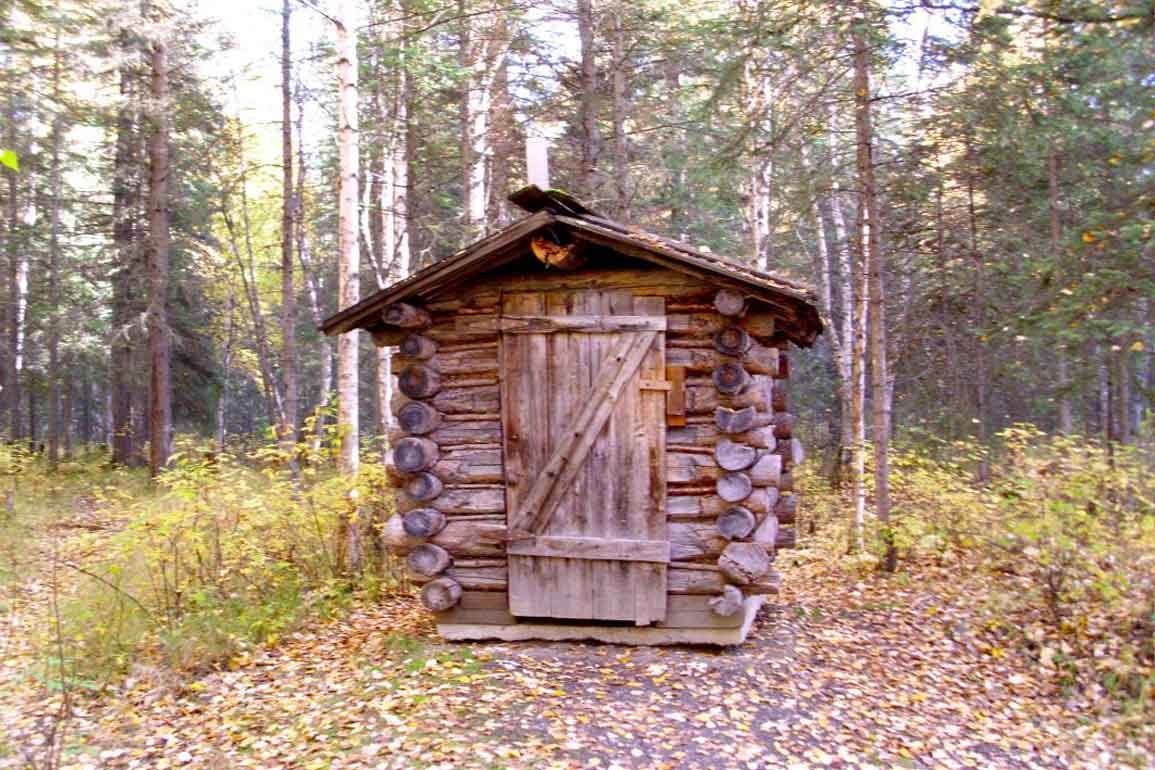A few years ago, on a visit to Wayanad, I stayed at a fancy resort (at least by my standards) and the only room available was a honeymoon suite lavished with all imaginable luxuries. What thrilled me most—the room didn’t just come with the regular personalized His and Hers towels—it had two attached bathrooms. They had taken specialness to a whole new level, His and Hers were stylishly emblazoned across separate doors. And there I was, alone, at a plantation resort, grinning from one loo visit to the next.
I had all but forgotten that holiday of many years ago. But of late, during this lockdown period, I’ve taken to day-dreaming of a separate loo fitted with a “privie in perfection”, as the water closet was first referred to in the Elizabethan times, more out of necessity than a whim. A room of my own had always been the original, unfulfilled, raging longing that occupied a corner of my mind, occasionally ballooning out every other thought. However, the loo recently has been eclipsing that room-dream.
Let me explain: I live in a small two-bedroom (1200 sq ft) apartment and my family of three has had to carefully negotiate me-space. We’ve junked things every now and then but as natural hoarders we continue to accumulate stuff, then the trashing begins all over. This dwelling is a far cry from my home in the village, where I grew up and my mother still lives, with its rambling rooms and expansive sit-outs that open out to a mango orchard, inhabited by trilling birds and chirpy squirrels. My longing for my village home became more pronounced as the lockdown tediously wore on. Rainer Maria Rilke puts that yearning more felicitously: “Oh longing for places that were not/ Cherished enough in that fleeting hour/ How I long to make good from afar/ The forgotten gesture, the additional act.”
All these rural elements were expectedly missing from my urban surroundings and over time I had grown to adjust to the cramped cuteness, the unquiet days and insomniac nights. The architect of our apartment building, now dead, had designed a spectacular atrium in the middle of the building with skylight and fountain, but with strange miserliness he had reduced the size of the rooms—“compact” was in vogue. As for the balconies they serve no purpose—perhaps, he had in mind, the egret or stork, perfectly poised on one leg, when he thoughtlessly sketched matchbox-sized ones.
However, one is rarely confined to the urban home for parks, restaurants, beaches, walkways, theatres, museums, offices, libraries and malls are considered extensions of one’s living space. We meet people in restaurants, get entertained outside, escape the coop at least for a few hours. Though they are borrowed and shared spaces, nevertheless they are spaces that allow you to connect with the universe, allow you to imagine you fleetingly possess the infinite. The realization of how illusionary this is became painfully evident during the lockdown. My apartment closed in on me inch by square inch. My son came home and claimed his bedroom, as he thinks he is entitled to, sealing us out. Though for a better part of the lockdown my husband was away, for which I am secretly grateful, he, too, came back at the beginning of the lockdown 2.0.
As space retreated further, unburdening my bladder in the mornings has become a preoccupation. On the mornings that I wake up later than my husband, it is my distended bladder that nudges me awake. I do not rush to take a leak, for my husband would have occupied the throne, as he calls it, newspaper in hand he would be in there for more than an hour. And I am disinclined to dethrone anyone, king or pauper, who sits on his throne. (Meanwhile in the capital, media convulsed with colic fail to examine the matter. Any allusions to O V Vijayan’s classic The Saga of Dharmapuri are purely coincidental.) And, I learn to lie perfectly still while my bladder engorges to bursting point. As for the occupant in the other bedroom, a late sleeper, he rarely opens his bedroom door in the mornings.
I recall a friend’s similar predicament when he was trying to eke out a living in Bombay now called Mumbai. In the initial months that he had landed in the city, he had rented a room with a bath attached but no toilet. The two common toilets at the far end of the corridor were shared by other rooms. Inevitably, there would be a queue outside the toilets as office goers rushed to do the big job before proceeding to work. He said he often had to use the office toilet or railway station restrooms to take a dump. He had paid to take a crap he had told me. He was the kind of storyteller who made hardships sound like achievements but his stories gave me a better understanding of the loos of Mumbai and of scatological clockings. He said that if one occupied any public toilet for more than a minute, people queuing outside would protest by banging on the door. You cannot relieve in peace was his conclusion. One can only imagine that such ordeals would be far worse for women. Even in Kerala, which boasts an open-defecation-free (ODF) status, there are few public toilets that women can safely access.
But with Mumbai under lockdown the “human eddy” the “torrent of people”, as V S Naipaul calls the crowds of Mumbai, are off the streets. Pictures of an empty Mumbai flood social media. A majority of residents are squeezed into their tiny homes, many of which don’t have toilets. In a high-density area like Dharavi, the world’s largest slum, where 10 lakh (6.5 lakh official figures) people dwell, the conditions of the toilets are unimaginably horrifying. The Hindu and The Washington Post reports give us a fair idea of the number of toilets in Dharavi—450 blocks of toilets and each block has around 10 toilets totaling to 4500 public toilets. A quarter of the residents is believed to have their own private toilets, the rest rely on these public hell holes—approximately 4500 toilets are used by nearly 6.5 lakh people and breaking that down further one toilet to 120 to 140 persons. Assuming the emptying of bowels is a 24-hour activity then each person gets 12 to 10 minutes for the job. Without going into the details of poop science the human body is conditioned to expel waste in the first few hours of waking up when the colon contracts more vigorously so a majority prefer to use the toilets in the mornings.
During the lockdown, unable to leave their homes and access the other public toilets or railway track sides, unburdening the bowels is a tortuous exercise. The Washington Post highlights the dilemma of a widow called Shedge living in Dharavi: “The family relies on a nearby communal toilet, where each visit costs 3 cents. These days Shedge avoids the early morning hours when the crowds are bigger, but even at 10:30 a.m., she sometimes waits in line for half an hour.”
Besides the queues, immobility or containment increases the load in the toilets leading to overflowing septic tanks. One of the earliest problems encountered by Kerala, under lockdown, was septic tank overflow from individual houses. According to Vinod Shetty of Acorn Foundation, an NGO working with ragpickers in Dharavi, the public toilets were privately cleaned and people would pay for the upkeep but with the arrival of covid-19, money is no longer being collected so private cleaning has stopped. The BMC cleans the public toilets twice a week but it’s clearly not enough. The lack of hygiene, water shortage, the long queues in front of toilets are making life for the residents unbearable. In the wake of Covid-19, people have lost their livelihoods-hunger and deprivation are their lot. The economic stimulus must immediately release funds for housing for Dharavi and other urban poor.
The pandemic has erased our ability to dream happy dreams—instead compels us each to live our own private nightmares.







